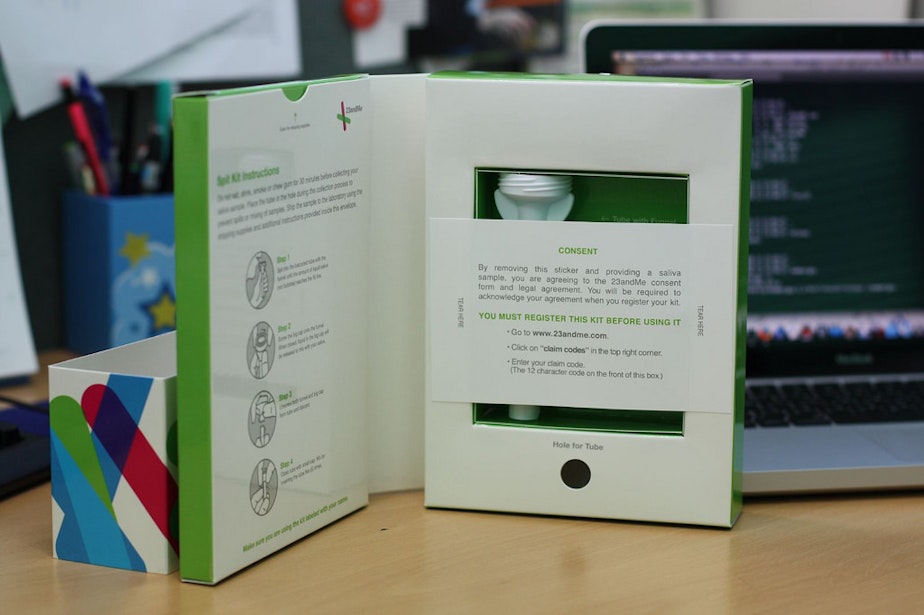Want to know your genetic risks? Talk with your family instead, this doctor says

Have you spit into a tube and mailed it away to learn about your genetic history?
Dr. Fuki Hisama, medical director of the University of Washington Genetic Medicine Clinic, says you might be better off just talking instead – to a genetic professional or your family.
“Sit down and talk with your relatives and ask them about their medical history and take some family history information,” she said, talking with Bill Radke on KUOW’s The Record. “That might actually give you a lot of insight into what sort of medical conditions run in your family, what you could be at risk for in the future.”
Bill Radke interviews Dr. Fuki Hisama on 'The Record'
Hisama said that while at-home genetics tests, such as Ancestry or 23andme, can be fun for learning about genetics, history or migration, they aren’t a diagnostic tool. It may be possible to discover risks for issues like certain cancers or Alzheimer’s, but the tests have also been shown to be frequently inaccurate.
Instead, Hisama said that if you have a concern about yourself or a family member, gather the appropriate medical records and family history (remember that part about talking!) and make an appointment with your doctor. She said genetic consultations are often covered fully or in part by insurance plans.
And even if you are using at-home genetic testing for educational as opposed to diagnostic reasons, Hisama issues a common warning: buyer beware.
“These are companies, so what are they going to do with your personal, private genetic information in the long term?” Hisama asked. “I think in the era of Facebook and all kinds of concerns about privacy, it’s just another layer to be concerned about.”
Produced for the web by Kara McDermott




